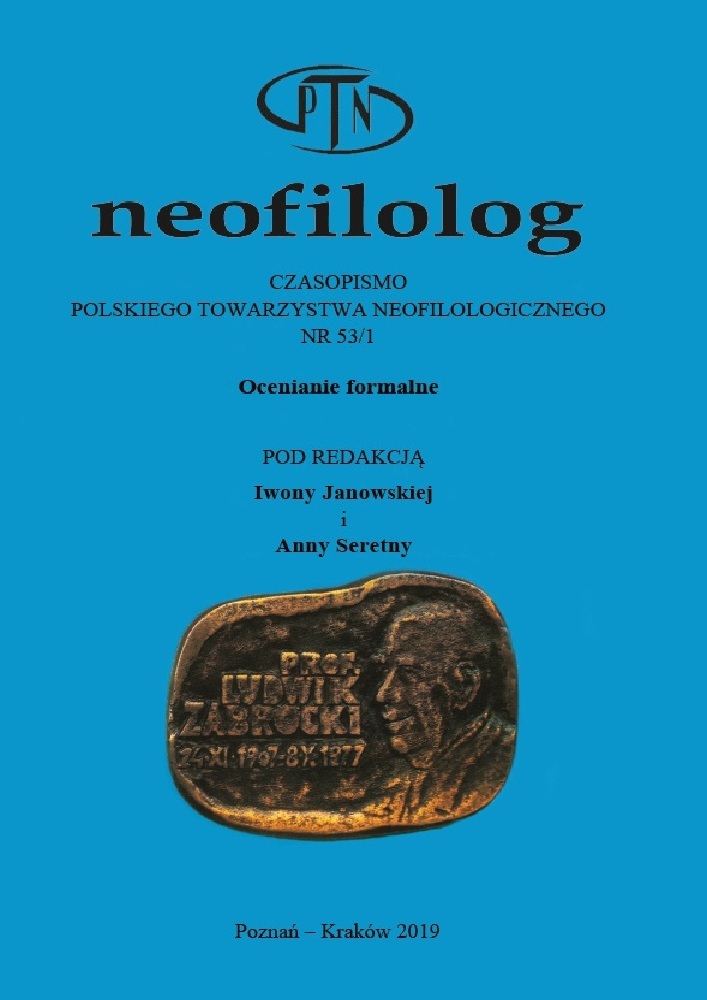Abstract
HSK (Hanyu Shuiping Kaoshi – 汉语水平考试) and HSKK (Hanyu Shuiping Kouyu Kaoshi – 汉语水平口语考试) are the official Chinese language proficiency examinations for foreigners developed by Hanban (Office of Chinese Language Council International) and their results are acknowledged by many employers and institutions. They, for example, facilitate admission to universities, open the way to variety of scholarships, etc. But do they genuinely reflect the actual level of students’ proficiency? To answer this question, the authors has analyzed the structure and content of HSK and HSKK as well as their theoretical basis; they also tried to relate the Chinese examinations to the CEFR (2001). On the basis of their research, the authors point to the difficulties that Polish learners encounter when taking these examinations.
References
Li-Piszczek Q. (2011) Chińskie testy językowe w perspektywie europejskiej (w) Materiały z VI Międzynarodowej Konferencji Edukacyjnej, str. 1-8. Online: http://docplayer.pl/43797199-Chinskie-testy-jezykowe-w-perspektywie-europejskiej.html [DW 15.10.2018]
Papińska E. (2014), Rola mniejszości narodowych i etnicznych Chin w rozwoju turystyki (w) Krajobrazy rekreacyjne – kształtowanie, wykorzystanie, transformacja. Problemy Ekologii Krajobrazu, t. 27, str. 301-311.
Skwarko L., Wojtaś A. (2015), Pozatechniczne kompetencje absolwenta Politechniki Warszawskiej i ich związek z kształceniem językowym (w) „Języki Obce w Szkole”, nr 3, str. 54-57.
Szymczak M. (red.) (1988), Słownik języka polskiego. Warszawa: Państwowe Wydawnictwo Naukowe.
Wang R. (2014), 汉语作为第二语言能力评估现状与分析 (Status i analiza ewaluacji biegłości języka chińskiego jako drugiego) (w) „语言科学” („Nauka o języku”), nr 13, str. 42-48.
Zajdler E. (2010), Glottodydaktyka sinologiczna. Warszawa: Wydawnictwo Dialog.
Zhang J., Li P., Li Y., Jie N., Huang L. (2012), 对新汉语水平考试的新思考 (Nowe spojrzenie na nowy HSK) (w) „中国考试” („Chińskie egzaminy”), nr 2, str. 50-53.
NETOGRAFIA
http://www.chinesetest.cn/goKdInfoOrPlan.do [DW 16.10.2018]
http://cis.chinese.cn/Account/Proceduresfor?lang=en-us [DW 16.10.2018]
http://www.fachverband-chinesisch.de/sites/default/files/FaCh2010_ErklaerungHSK.pdf [DW 16.10.2018]
http://prawo.sejm.gov.pl/isap.nsf/download.xsp/WDU20180000261/O/D20180261.pdf [DW 15.10.2018]
License
Copyright (c) 2019 Neofilolog

This work is licensed under a Creative Commons Attribution-NoDerivatives 4.0 International License.
Authors
Authors of texts accepted for publication in Neofilolog are required to complete, sign and return to the Editorial team’s office the Agreement for granting a royalty-free license to works with a commitment to grant a CC sub-license.
Under the agreement, the authors of the texts published in Neofilolog grant Adam Mickiewicz University in Poznań a non-exclusive, royalty-free license and authorize the use of Attribution-NoDerivatives 4.0 International (CC BY-ND 4.0) Creative Commons sub-license.
The authors retain the right to the free disposal of the work.
Users
Interested Internet users are entitled to use works that have been published in Neofilolog since 2017, under the following conditions:
▪ attribution – obligation to provide, together with the distributed work, information about the authorship, title, source (link to the original work, DOI) and the license itself.
▪ no derivatives – the work must be preserved in its original form. Without the author's consent, it is not possible to distribute the modified work in the form of translations, publications, etc.
Copyrights are reserved for all texts published since 2017.
Miscellaneous
Adam Mickiewicz University in Poznań retains the property right as a whole (layout, graphic form, title, cover design, logo etc.).

